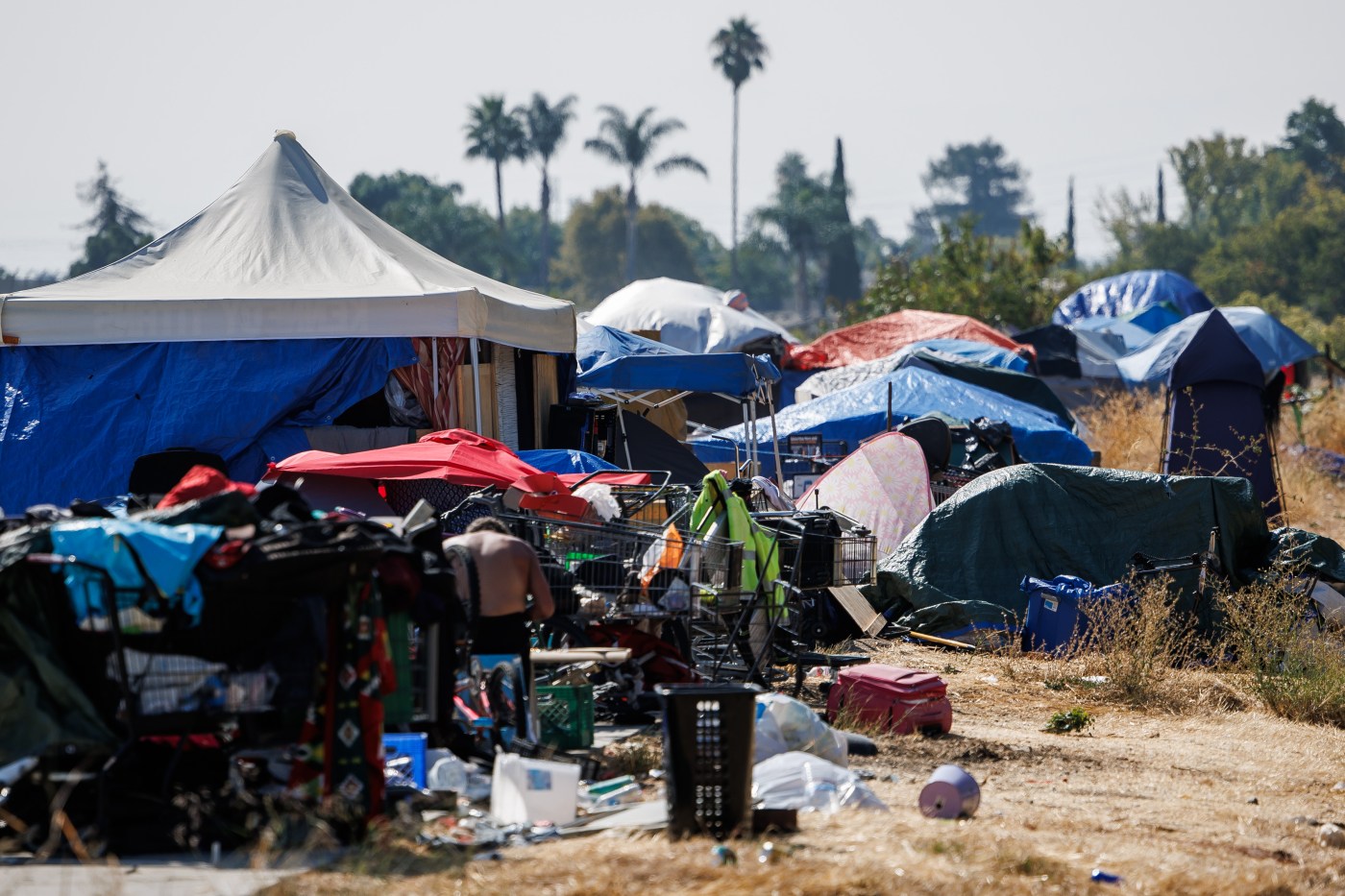
FREMONT — A lawsuit that tied up Fremont’s controversial camping ban has been withdrawn, paving the way for the city to begin enforcing it at homeless encampments.
It all started on Feb. 11, when the Fremont City Council approved one of the strictest camping bans anywhere in the region and California. On the same day the lawsuit was filed on March 4, the council walked back a clause that would have allowed county prosecutors to criminally charge anyone caught “aiding and abetting” homeless residents.
The ban on camping on Fremont city streets was supposed to go into effect on March 13, but was paused at the recommendation of a federal judge, which city leaders did not contest.
On Sept. 5, the lawyer representing several faith-based organizations and homeless residents dropped the lawsuit, claiming a “political” win in the case because public outrage influenced the city to remove the “aiding and abetting” clause.
“We still consider that a victory,” the attorney, Anthony Prince, said in an interview Wednesday.
Fremont City Manager Karena Shackelford and City Attorney Rafael Alvarado Jr. did not return requests for comment. Instead, city spokeswoman Geneva Bosques offered a written statement that said the city was “pleased with the outcome.”
“The city will continue prioritizing its encampment interventions on conditions posing a health and/or safety risk to the community,” Bosques wrote. She added that the city is “hopeful” that funding recently made available through Measure W, a $1.8 billion bond voters passed in 2020 to help combat homeless issues, will help more unsheltered residents find “stable and safe housing.”
Bosques also said the city hasn’t issued any citations or made any arrests “under the authority of the camping ordinance” since council adopted the ban. The ordinance came on top of a vehicle parking ban the council approved last November prohibiting large trucks and RVS from staying in one place longer than 72 hours.
“I thought that was one of the dumbest laws I ever heard of,” homeless resident Steven Leal, 48, said in an interview Thursday at his camp near Quarry Lakes Regional Park. “What are you going to do with all the homeless people?”
Residents and homeless advocates previously pushed back against the city’s ban because they worried of legal persecution by Fremont police. Advocates feared making charitable donations of any kind — such as tents, clothing, food and water and other camping “paraphernalia” — would be considered aiding and abetting an encampment, which could have been punishable by up to a $1,000 fine and six months in jail, according to the ban’s previous language.
But by suing the city, Prince said, advocates forced the council to reconsider and remove the contentious clause. The city, he said, has “stayed their hand,” and left unsheltered people alone.
“The tents are up,” Prince said. “The measure is still on the books, but it’s not being enforced.”
In court filings, the city’s attorneys wrote that Prince and his clients had “taken away valuable time that the court could devote to other major and serious civil and criminal cases” by missing two deadlines to file an amended complaint, following the removal of the aiding and abetting clause. The city filed a motion to dismiss the case in August, citing Prince’s failure to submit filings on time.
This week, Prince acknowledged that a judge likely would have ruled in the city’s favor to dismiss the case, which he said would have prevented a future suit over the ban. By voluntarily dropping the case, he said, his clients reserve the right to pick the case back up.
He said another suit would be likely if the city begins “aggressively” enforcing the camping ban.
“We’re not going to give up on the whole issue of homelessness in Fremont. Just the opposite,” Prince said.
In the meantime, Prince added he and his clients are looking to take aim at some kind of future legislation at the state level that would broaden rights and resources for homeless people throughout California.
“It’s unacceptable for people to have to be on the street and be put at risk by a city that has for the most part failed to seriously address the issue of homelessness in Fremont,” he said.
Enrique “Kix” Renteria, a 30-year-old homeless resident, said Thursday that living unsheltered in Fremont is “overwhelming,” and called the camping ban “dehumanizing.”
Born and raised in San Jose, Renteria said he and his girlfriend have been living near the Quarry Lakes Regional Recreation Area since 2020, along with their four pets — three dogs named Hyphy, Do Too and Lunch Box and a cat named Genesis. Though the city had not cleared any camps as of Thursday, he said he’s worried they now could.
“What’s next? We’re already having a hard time day by day,” Renteria said.